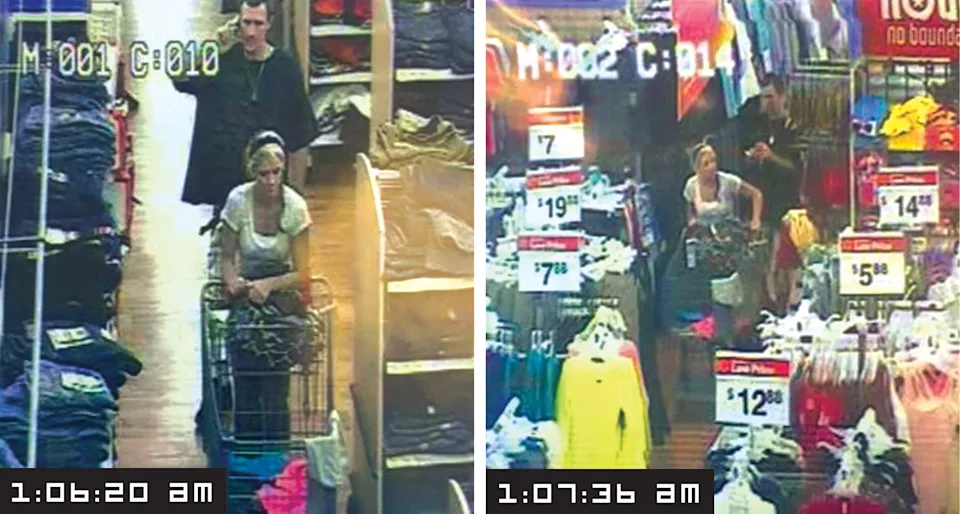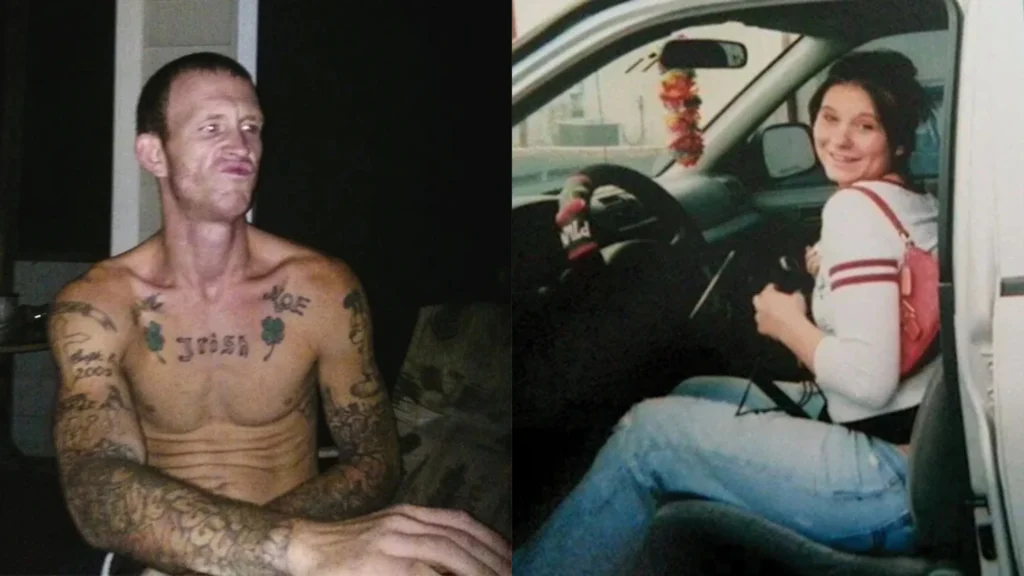In the early morning hours of September 13, 2013, a young woman sprinted barefoot out of a Walmart in Marietta, Georgia, and vanished into the night. Her name was Tiffany Whitton. She was only 26 years old, a mother, a daughter and someone battling the chaos of addiction. That was the last confirmed sighting of her.
Growing Up in Georgia
Tiffany Michelle Whitton was born on January 30, 1987, in Kennesaw, Georgia. Her parents divorced when she was a baby, leaving her mother, Lisa Daniels, to raise her. Daniels has often described her daughter as a “happy-go-lucky” and “rambunctious” child who could light up a room. But there were early signs of trouble.
When Tiffany was just two years old, she came home from daycare with toys that weren’t hers. She insisted they’d been given to her but her mom suspected otherwise. That small act of dishonesty, Daniels later recalled, was a glimpse into struggles that would follow Tiffany into adulthood.
School didn’t hold Tiffany’s attention. She dropped out during her sophomore year, leaving behind earlier dreams of becoming a veterinarian. Teenage pregnancy added to the weight of her early life. She gave up her first child for adoption, an event she admitted scarred her deeply. By her early twenties, she had another daughter but was also slipping into addiction.
A Downward Spiral

By 2008, Tiffany was hooked on OxyContin. She was caught stealing flip-flops from a Walmart—an eerie foreshadowing of the crime that would eventually frame her disappearance.
She worked various jobs, mostly in the service industry. At one point, she called herself a Hooters waitress on social media. To her family, though, her life seemed to be unraveling.
In 2011, Tiffany was arrested for her role in a home invasion in Dalton, Georgia. She told police the man she confronted had stolen money from her but authorities suspected it was drug-related. She ended up serving a short prison sentence that began in late 2012, per Wikipedia.
Her mother cut off communication, trying “tough love” in hopes Tiffany would get clean. After her release, her grandmother, Anita Boyette, helped her through rehab. Tiffany landed a waitressing job at IHOP and, for a while, things looked promising.
But stability never lasted long. She was kicked out by a roommate for stealing. She fell into another volatile relationship—this time with Ashley “Red” Caudle. Together, they slid deeper into meth and heroin use.
Their fights were loud and frequent, often involving police or neighbors. Tiffany lost her job at IHOP after being caught stealing again on camera.
By August 2013, her mom had stopped speaking to her altogether.
The Walmart Night

September 12, 2013, started out like many nights for Tiffany and Caudle—high and restless. Borrowing a friend’s truck, they drove to the Marietta Walmart near her former workplace around 1 a.m.
Security officers inside immediately noticed Tiffany. She looked jittery, on edge, nervously picking up clothes and then putting them back. Caudle, meanwhile, selected items for his daughter and a portable speaker.
By 2 a.m., the pair abandoned their cart and walked toward the exit. At the doors, security stopped Tiffany on suspicion of trying to walk out with about $20 worth of merchandise.
One guard grabbed her purse strap. Tiffany kicked off her flip-flops, yanked free and bolted. In seconds, she was gone—leaving her shoes, purse and phone behind.
Caudle didn’t chase her. He didn’t even call after her. He simply stood there.
After Tiffany Ran

Loss prevention staff assumed she’d be back to collect her belongings. She never returned.
Caudle later gave shifting accounts of what happened next. At first, he bragged to friends that he threatened Walmart employees with a weapon to free Tiffany, though he later admitted he made that up.
He said he wandered the parking lot looking for her but avoided the truck because it contained drugs. He was later spotted sitting on a bench outside IHOP around 2 a.m.
A former roommate of Tiffany’s, Sheila Fuller, urged him to call Tiffany’s phone. Caudle claimed it was charging, though records showed no outgoing call.
Friends eventually drove him around searching but Tiffany never reappeared.
The Missing Person Report

It wasn’t until January 2014—four months later—that Tiffany’s mom finally reported her missing. She was used to long absences but this time felt different, the 11 Alive reports.
The first detective assigned wasn’t optimistic. Lisa Daniels remembers being told the case would “close when Tiffany either returned or got arrested elsewhere.”
Eventually, Detective Jonnie Moeller took over. She believed Tiffany was likely dead. But by then, leads had gone cold.
Police quickly zeroed in on Ashley Caudle. His record, inconsistent stories and failure to report Tiffany missing raised red flags.
In March 2014, a drug task force raided the house where Tiffany had last lived with him. They found drugs and weapons. Caudle was arrested, along with others. Later, investigators searched his mother’s home but found no sign of Tiffany.
In 2015, Caudle pleaded guilty to drug charges and was sentenced to 10–20 years, according to News Nation. Some have suggested his refusal to cooperate in Tiffany’s case played into the severity of his sentence.
Detective Moeller didn’t mince words. She publicly said she believed Caudle was responsible. Tiffany’s mother echoed the same: “He knows what happened to her and he knows where she is. Of that I have no doubt.”
Caudle has always denied involvement. He claims Tiffany simply ran off and never came back. In later interviews, he even suggested another ex-boyfriend with mental health problems might be responsible.
Dead Ends

In 2015, a tip led investigators to search under Bethany Bridge with sonar. All they found was a chunk of concrete.
By 2016, the case was transferred to a cold case squad. Nothing new has come up since.
Despite the dramatic circumstances, Tiffany’s case received very little national coverage. In 2016, journalist Tom Junod wrote an article in Esquire calling her story an exception to what he described as “missing white woman syndrome.”
Her background—drugs, shoplifting, prison—meant TV shows and news outlets didn’t want to feature her. “Her case was just not seen as marketable,” Junod observed.
Even so, Tiffany’s family has pushed to keep her memory alive. Her half-brother Blake recalled receiving a strange phone call months after she vanished. There were also suspicious messages from her social media accounts. But none of it has been verified as truly coming from Tiffany.
Law Enforcement’s Take
Cobb County Assistant District Attorney Jesse Evans summed up what makes Tiffany’s disappearance so haunting:
“Here you have an individual who literally ran out of her life. She left her phone, she left her contact with the outside world, she left her personal belongings. The circumstances immediately surrounding her disappearance are extremely suspect.”
Theories about Tiffany’s fate swirl even today. Some believe she overdosed shortly after fleeing Walmart and Caudle covered it up. Others suspect violence between the two that night. And still, some cling to the hope she may have survived somehow, choosing to disappear.
No evidence has ever confirmed any of these possibilities. Tiffany Whitton simply vanished—barefoot, belongings abandoned and her future erased in the shadows outside a Georgia Walmart.
Let’s dig into the legal side of not reporting a missing person.
Failure to Report a Missing Person: Is It a Crime?
When someone disappears, most people assume there’s a 24-hour waiting period before police will take a missing person report. That “rule” gets repeated so often in movies and TV shows that it feels like fact.
But ask almost any cop and you’ll hear the same thing: there’s no magic number of hours. “Report them missing immediately,” law enforcement agencies stress because the clock matters. The first hours after someone vanishes are often the only chance to find real clues.
That raises a bigger question. What if someone doesn’t report? What if the people closest to a missing person just… keep quiet? Can that actually be a crime? The answer is complicated.
In the United States, there isn’t one universal rule. Instead, the laws change depending on the state, the situation and the relationship between the missing person and whoever failed to speak up. But across the board, there are clear principles that show where silence can cross the line into criminal behavior.
Reporting Rules Across the States
The first thing to know: most states have no waiting period at all. If someone goes missing, you can walk into a police station and file the report right away. Cops may ask questions to figure out whether the disappearance looks voluntary or suspicious but legally, you’re allowed to put their name on record.
The National Crime Information Center (NCIC) even instructs agencies to enter missing person data “promptly” so it’s accessible nationwide. The faster a name goes into that database, the faster other departments, airports and border officials can see it.
That’s why the myth of “you have to wait 24 hours” can be so damaging. It keeps families from speaking up early. And in missing person cases, lost time is usually lost evidence.
Who Has a Legal Duty?
Here’s where things get stricter. While the average friend or coworker isn’t usually punished for not calling police, certain people absolutely have a duty to report.
Parents and guardians are at the top of that list. If a child vanishes and a parent doesn’t alert authorities, that can lead to criminal charges. Some states go further and make it illegal for caretakers or institutions — like nursing homes or mental health facilities — to fail to notify police when someone under their supervision disappears. These rules exist to protect the most vulnerable: kids, elderly people and individuals with disabilities.
Texas is one example. Under the Texas Code of Criminal Procedure Chapter 63 (2025), missing child and missing person reports have to be made without delay and law enforcement must treat them seriously.
Indiana’s code on missing persons (2022) also requires immediate entry of data into the state system and then into the NCIC. Federal law echoes that: 34 U.S. Code § 41308 says that each state must ensure “prompt entry of records” for missing children into databases used nationwide.
So if a caregiver doesn’t report, it isn’t just irresponsible — it can be a crime.
When Silence Becomes Criminal
It’s important to draw a line here. Simply not picking up the phone right away doesn’t always land someone in court. Prosecutors usually look for intent. Did the person try to cover things up? Did they lie about what really happened? Did they block someone else from calling the police? That’s when it shifts into possible charges like obstruction of justice or even aiding and abetting.
Think about it: If someone knows a person has vanished under suspicious circumstances but tells investigators “everything’s fine” — or worse, hides evidence — they’re not just failing to report. They’re actively interfering. And obstruction has real teeth. Depending on the state, it can be a misdemeanor or even a felony.
One former prosecutor put it this way: “It’s not illegal to be a bad friend. But it is illegal to cover for someone when the law says you need to tell the truth.”
How Police Respond Once a Report Is Filed
Let’s say the call is finally made. What happens next? Procedures vary by state but most share a similar outline.
Law enforcement usually has to get the missing person into the system right away — sometimes within as little as two hours. That means entering details into the NCIC Missing Person File: name, age, physical description, last known location, medical or mental health conditions and anything that might suggest danger. From there, alerts go out to surrounding counties and states.
The first conversations are critical. Police will press the reporting party for every detail: When was the person last seen? Were they acting unusual? Who were they with?
Investigators will want access to phone records, social media and sometimes financial accounts. In some cases, they’ll bring in search dogs, check surveillance cameras or ping a cell tower.
What they don’t do is assume every adult disappearance is a crime. Adults have the legal right to walk away from their lives if they want to. That complicates things because police have to balance respecting someone’s freedom with investigating possible danger.
Missing Adults: The Legal Gray Area
This is where the law gets messy. If a 17-year-old disappears, it’s automatically treated as a priority. But if a 25-year-old vanishes, police have to ask: did this person simply choose to leave?
The answer often decides how much effort the case gets. If there’s no evidence of foul play and no sign the adult is vulnerable, some departments close investigations quickly. But when vulnerability is clear — an adult with dementia, a person with severe mental illness, someone under abusive control — states often impose stricter rules.
In practice, that means treating those adults more like missing children: mandatory reporting, mandatory database entry and a faster, louder response.
The laws reflect a simple truth: not all missing adults are the same. Some are exercising freedom. Others are at risk. And figuring out which is which isn’t always easy.
Why Delay Matters
Investigators say the first 48 hours of a missing person case are crucial. That’s when witnesses remember the most, when surveillance footage hasn’t been erased and when digital trails are still fresh. A delay in reporting can erase that advantage completely.
It’s why police constantly repeat: there is no waiting period. If someone is missing and you’re worried, pick up the phone. Even if the person turns up safe, the report creates a record. And if they don’t, you’ve given law enforcement a head start.
Failure to report a missing person isn’t always a crime but sometimes it is. Parents, guardians, caretakers and institutions are legally required to speak up. Friends and acquaintances usually aren’t charged unless they actively lie or hide information. But in every scenario, delay hurts. It hampers searches, erases evidence and leaves families in the dark.
And the law, for all its variations, is built on one simple principle: when a person vanishes, time is not on anyone’s side.




